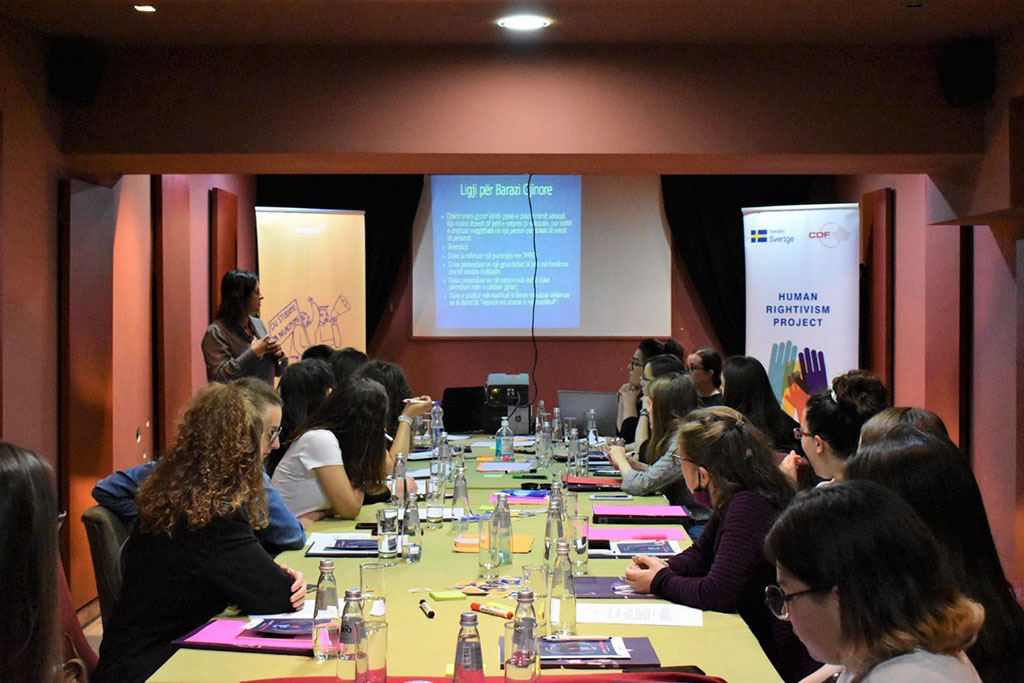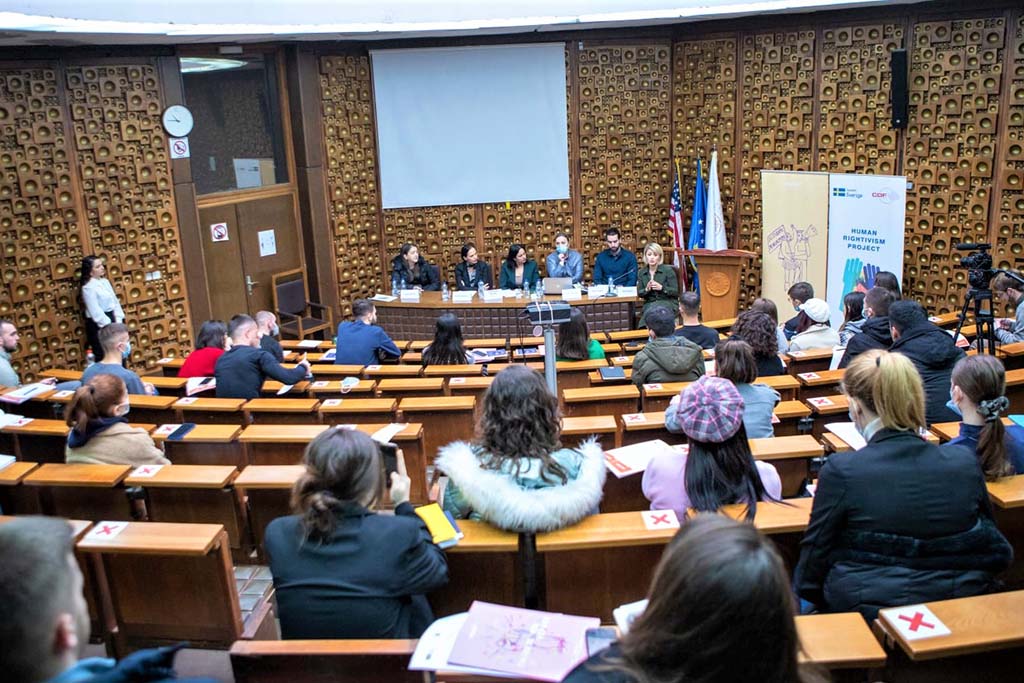The shame is not ours or the burden of another’s shame
In Kosovo, a traditionally patriarchal society, freedom of girls and women is precarious. They face harassment and sexual harassment daily, even in spaces that should be safe and protected, such as public universities. Unfortunately, lack of consequential institutional action and mistrust in institutions has caused girls and women in Kosovo to remain silent and not report cases.

Awareness raising on sexual harassment
The Kvinna till Kvinna Foundation’s long-term partner organisation Artpolis — Art and Community Centre has been systemically working on awareness raising on sexual violence and harassment in Kosovo since 2012. Their tools of choice in their fight are art, workshops, reports, discussions, and trainings. Artpolis has invested significant efforts to establish the necessary infrastructure to increase the public trust—especially of women and girls, in institutions, so that sexual harassment and violence against women and girls is reported and investigated by relevant institutions, holding perpetrators to account.
In a series of workshops and meetings, held by the partner organisation over the years, students from different municipalities in Kosovo were familiarised with the challenges, opportunities and psychological consequences resulting from sexual violence and harassment. They were trained to identify negative behaviours and relevant legal frameworks pertaining to the topics at stake, so that they can take right action when needed.
Adoption of the Regulation on Prevention and Protection from Sexual Harassment
Following Artpolis’ persistent advocacy and awareness raising activities about sexual violence and harassment, in May 2021 the Steering Council of the University of Pristina adopted for the first time the “Regulation on Prevention and Protection from Sexual Harassment at the University of Pristina”. This was a historic triumph that came 52 years after the establishment of the University of Pristina. Prior to this there were no guidelines, regulations or any type of document, or procedure that addressed the issue of sexual harassment at universities, let alone encouraged students to report harassment and discriminatory behaviours.

After the adoption of the regulation, Artpolis and the University of Pristina held fourteen workshops for students at the University addressing harassment and sexual harassment. Among others, students learned how to adequately report harassment and discrimination while maintaining the confidentiality of identity and shared information.
The adoption of the regulation was preceded by research on handling of sexual harassment in public universities in Kosovo that Artpolis conduced in 2015. The results were disturbing. The research showed that sexual harassment at the universities in the country is very widespread, but the reporting of cases of sexual harassment was almost non-existent. When interviewed, the female students claimed to be aware of sexual harassment cases, but that fellow female students were reluctant to report these to the universities’ officials due to the mistrust in the institutions and the tabu mentality surrounding the topic at stake.
Even though Artpolis has been witness to positive changes in Kosovo over the last decade, both in reference to increased action on awareness raising on sexual violence and harassment, as well as on reporting of cases, still, for as long as relevant institutions don’t take steps towards the incrimination of sexual harassment, justice will not be served to the victims, nor will they receive the necessary comprehensive protection. Women will continue to carry the burden of the shame that is not theirs.